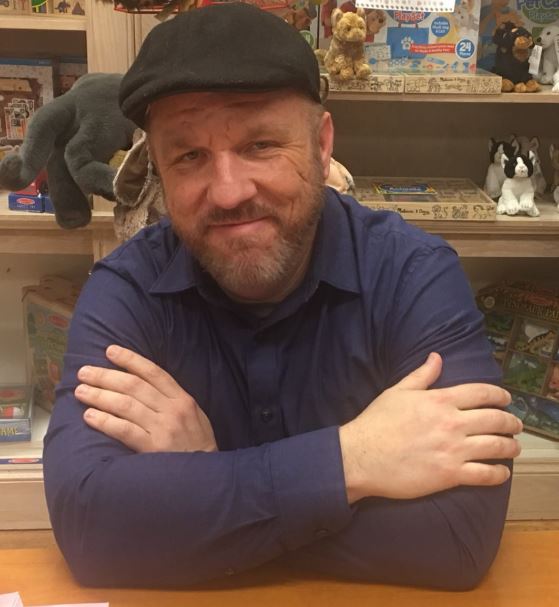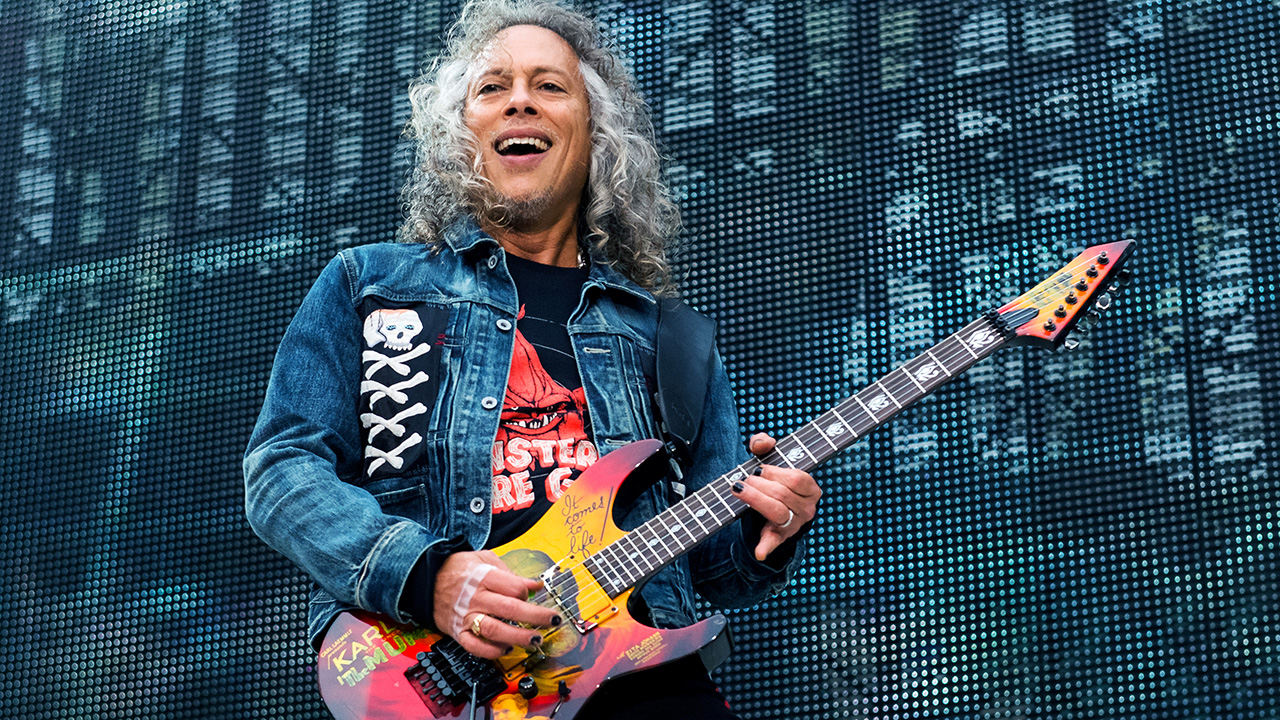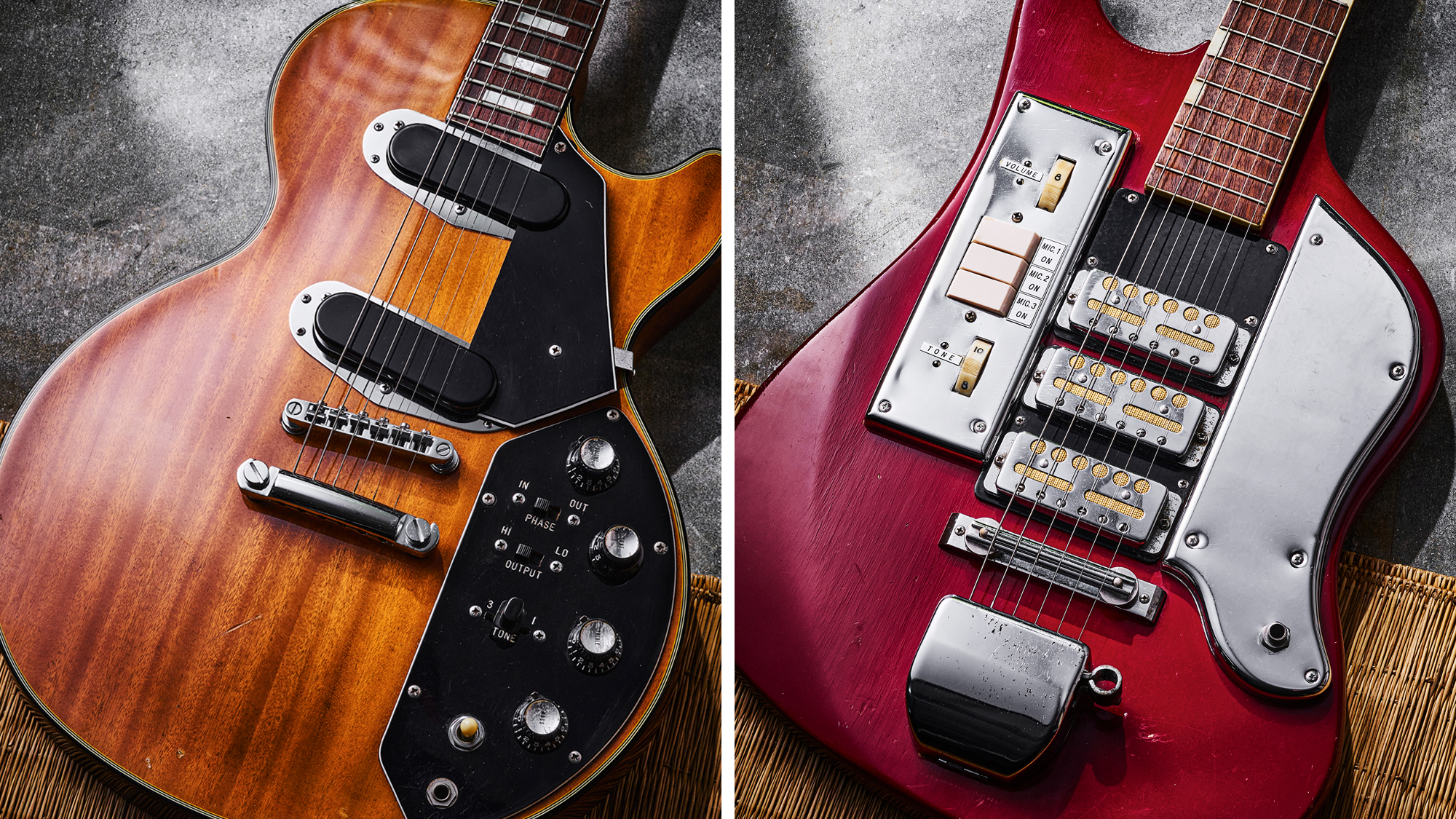'Drive': FireHouse Guitarist Bill Leverty Discusses New Album of Classic Cover Songs
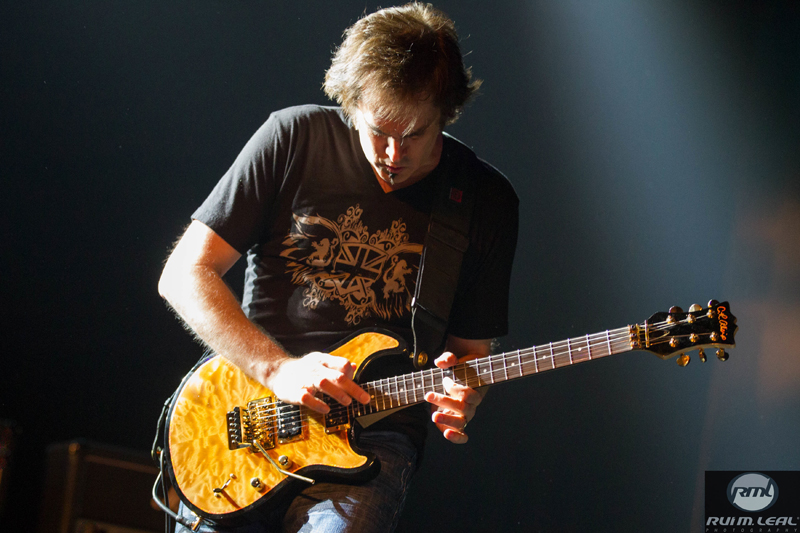
People who check out Bill Leverty's new album of covers, Drive, will find that it’s something of a time machine.
It transports listeners to the carefree 1970s, when riding in the backseat of your parent’s car and listening to rock radio was the norm. It didn't even matter where you were going. All that mattered was the music.
The FireHouse guitarist has released several solo albums during his career, but this effort pays tribute to the most sacred music of all — songs that inspired him as a youth.
In addition to a blistering guitar attack on tracks like CCR's "Fortunate Son," Drive contains tasteful renditions of Steely Dan’s "Rikki Don't Lose That Number” and the Guess Who's "No Time." Leverty also puts his own spin on such classics as "Free Ride" (Edgar Winter Group), “I Shot the Sheriff” (Bob Marley, Eric Clapton) and "Spanish Moon" (Little Feat).
Handling the brunt of the vocal work himself, Leverty keeps the essence of the original songs intact yet adds something fresh and new to the equation.
I sat down with Leverty to discuss Drive, his playing and songwriting. We also discuss how Firehouse was born. Fans might recall that Firehouse beat out Nirvana and Alice in Chains for the AMA "Favorite Heavy Metal/Hard Rock New Artist" award, but, as Leverty points out, there's another band honor he's even more proud of.
GUITAR WORLD: What was the inspiration for this album?
Get The Pick Newsletter
All the latest guitar news, interviews, lessons, reviews, deals and more, direct to your inbox!
The songs themselves are what inspired me. I've always wanted to do a cover album from my youth, and it was finally time to do it. It was a way for me to go back and relive those days. I'll still never forget the first time I heard "I Shot the Sheriff." I remember riding along in the backseat of my Mom and Dad's car driving to hockey camp when it came on the radio. I thought it was such a cool song. It’s one of those songs where you always remember when and where you were when you first heard it. My parents always had the radio on during those drives, and it exposed me to a lot of great music. Whether we were going to camp, the doctor or wherever; the radio was always on.
How did you decide which songs to include?
Each song had to be one I loved as a kid. They also had to be songs that I loved before I started playing guitar (at 15) and a song that I still love today. Finally, it had to be a song that hasn't been covered much. I had to find songs that hadn't been played to death and something that I could put my "herbs and spices" on to make it mine, but still stay true to the original. It was a learning experience for me to see how these artists sang, and how brilliantly the producers and engineers produced this music back in the day.
What players joined you on this album?
Andre LaBelle played drums on all of the songs. He played with Vinnie Vincent for years and is a world-class musician and the most sought-after instructor in my hometown. Then I brought in Keith Horne, who is one of the best bass players in the world. He's a Jaco Pastorius-type fluent bassist and a really great guy.
Let's discuss a few tracks off of Drive:
"Fire" (Ohio Players): When I was growing up, I had a few newspaper routes that my boss and I would do together. We would drive around in his car all morning long delivering papers and he would have on this '70s funk station. I would listen to it every morning for a few years and eventually, that music got into my blood. That's why there's a Stevie Wonder and Ohio Players song on the album. Those songs hit me at an early age and still stick with me to this day.
"Rikki Don't Lose That Number" (Steely Dan): I tried to learn as many of the Donald Fagan piano riffs that are in between each verse line as possible. They're all signature, tasteful licks and it was such a great education. I got to take a lesson from Fagan, who I think is one of the greatest songwriters of all time.
What's your own songwriting process like?
It varies, but the general rule for me is trying to find something while playing along with a drum beat. When I play along to a beat, it frees up that portion of my brain so I don't have to concentrate as much on rhythm and timing and can instead concentrate more on melody and harmony. Our song, "All She Wrote" is an example of one of those songs that started as a riff that came out by playing along with a drum beat. If I don't have an idea in my head already, I'll try to get a hook or a chorus and work backwards from there.
How about "When I look Into Your Eyes"?
We were driving around in a tour bus out west near Arizona. It was the first time in my life that I had ever been out there and I remember waking up early, looking out the window at all the beauty and just saying, "I can't believe my eyes!" That became the melody. I took the idea to CJ [Snare, vocals], who thought it was cool, but he wasn't sure about that line as the hook. So I thought about it for a while and came back to him with "When I Look Into Your Eyes" and he said, "There you go!" So he ran with it for a while and after talking and singing about it back and forth, we both sat down with our instruments and put it all together.
How do you approach practicing the instrument these days?
I practice a little differently than I used to. I haven't been doing as much shredding and instead have been concentrating more on picking up the acoustic and finger-picking, which is something that I was deficient on. That was actually another reason about wanting to do this album: trying to get out of my comfort zone and doing things that I wouldn't normally do.
How did FireHouse come together?
We were originally the fusion of two bands. Michael Foster [drums] and I were in a band called White Heat and CJ and Perry Richardson [bass, whose since been replaced by Allen McKenzie] were in a band called Maxx Warrior. Both played on the same circuit. Both bands broke up around the same time, and Michael and I sent CJ a demo of some songs we had written and asked if he wanted to sing on them. So he came to the studio and sang on the songs.
From there, we wound up doing a gig and playing the songs. After a while, we started getting serious about it. We still called ourselves White Heat and played a bunch of gigs, had some record company interest and were ultimately signed by Epic. That was when we discovered there were about four bands with the name White Heat around the country and decided to change the name. Michael was going to be a firefighter at one time and was the one who came up with the name Firehouse.
What's been one of the biggest highlights of your career thus far?
In 1992, we put out our second record [Hold Your Fire] and the first single was a song called ”Reach for The Sky." One day, the 82nd Airborne wrote us a letter and asked if they could use it as their recruitment song for a year. They said they wouldn't be able to pay us, but they thought the song would really fit the meaning of what it is to be part of the 82nd Airborne. We said, “Absolutely!”
A week later, we each received a hand written letter signed by the general, a coin that you get when you graduate from basic training and an 82nd Airborne sweatshirt. It's one of the coolest things that's ever happened to me and the band. It was an honor that something I had a small part in creating touched a nerve with someone who's protected my rights and my family's lives. For them to want to use it as their recruitment song was overwhelming. It doesn't get more rock and roll than that!
For more info on Bill Leverty and FireHouse, check out leverty.com and firehousemusic.com.
On Facebook: Bill Leverty and FireHouse.James Wood is a writer, musician and self-proclaimed metalhead who maintains his own website, GoJimmyGo.net. His articles and interviews are written on a variety of topics with passion and humor. You can follow him on Twitter @JimEWood.
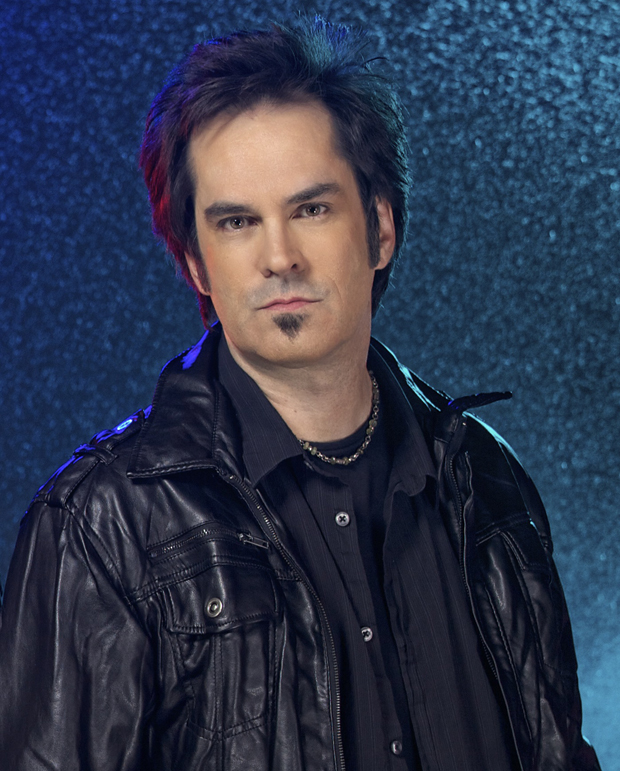
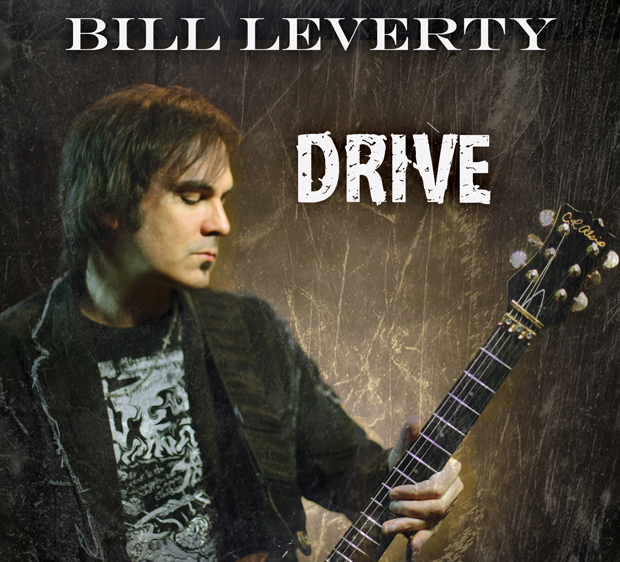
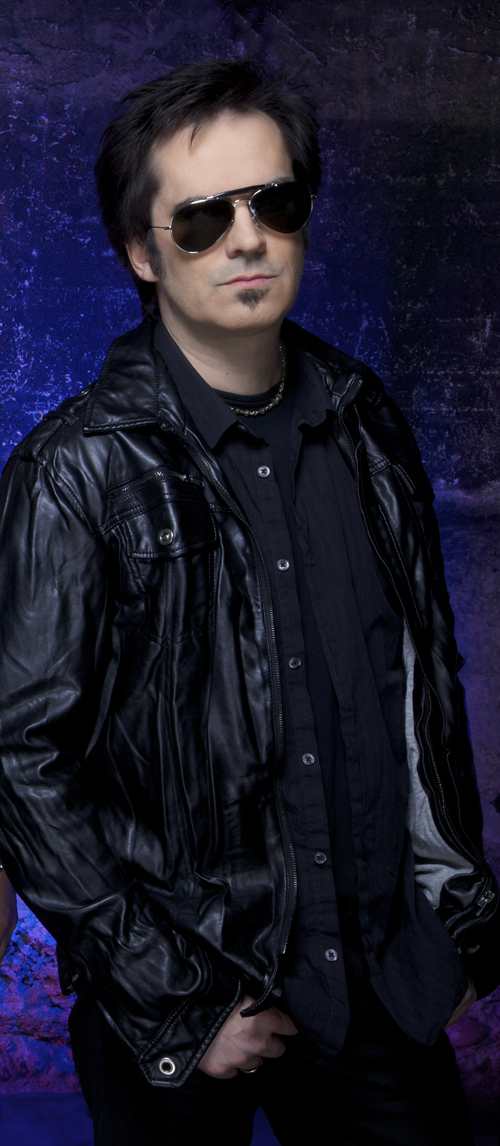
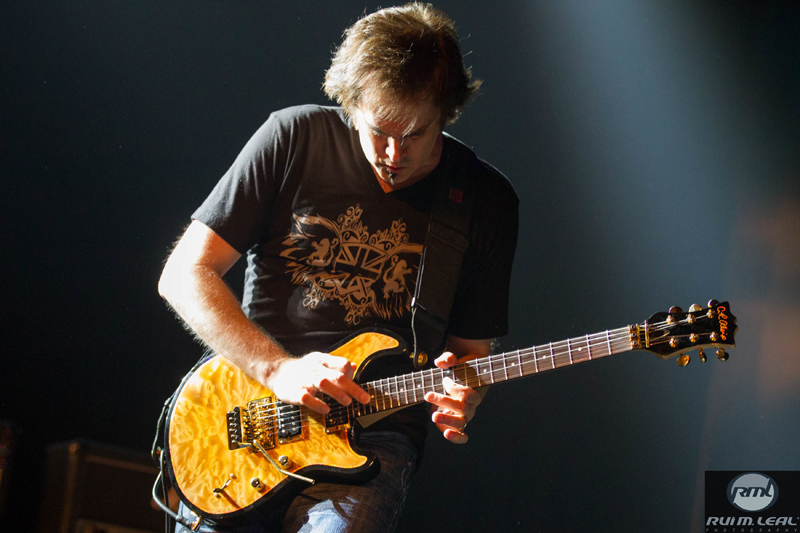
James is a guitarist and freelance writer who's interviewed some of the biggest names in music. He is the author of four books and his writing credits include work for Guitar World, AXS and Yahoo! as well as for his hometown newspaper where he writes on a variety of topics with both passion and humor. As a guitarist, he's performed everywhere from local bars and nightclubs to some of the biggest stages in front of thousands of music fans.
